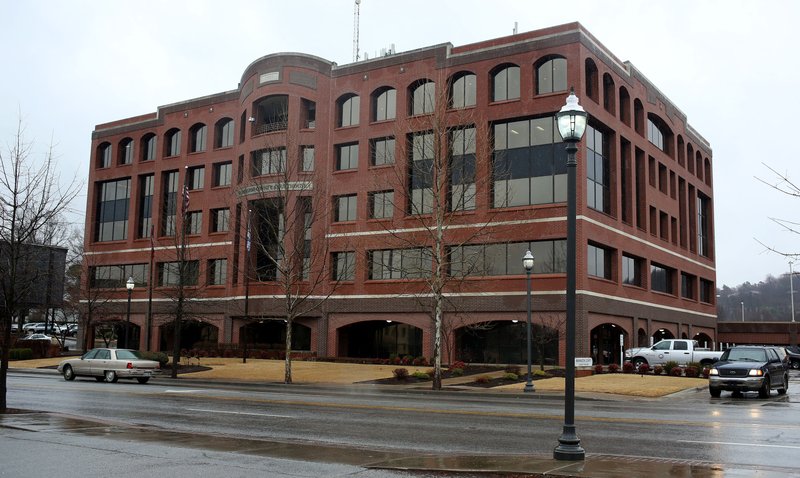FAYETTEVILLE -- Reappraisals will occur this year regardless of the pandemic, the state has informed the assessors in 19 counties due for reappraisal this year.
Washington County property values will certainly show an increase since the last reappraisal in 2015, said Assessor Russell Hill. He estimates an increase of 30% on average, although the increase in taxes from those new values will be phased in over several years.
A reappraisal done this year will be based on 2019 fair market values for properties.
The increase in taxes will come as a blow to businesses and homeowners while many are suffering from the economic effects of the pandemic, Hill said. He asked the state Assessment Coordination Division in May whether the reappraisal could be delayed a year to allow the covid-19 pandemic's expected effect on property values to show up in the reappraisal.
[CORONAVIRUS: Click here for our complete coverage » arkansasonline.com/coronavirus]
The pandemic and resulting economic downturn would have tempered the increase in values and taxes, he said.
The division said in a May 28 initial response letter that the law allows no exceptions. Hill asked what the penalty would be if he refused to conduct a reappraisal. The state answered that it would conduct the reappraisal if he refused, Hill said.
Republican state Sen. Lance Eads, a Springdale Chamber of Commerce executive, said a property reappraisal could not happen at a worse moment.
"It's just terrible timing," Eads said.
"This puts businesses and families in a difficult situation," he said. "Their taxes are going to be based on a time when things were flying high."
Steve Clark, Fayetteville Chamber of Commerce president and chief executive officer, is a former state attorney general. He said the business community and others will take the matter to the governor and to lawmakers.
"I'm stunned by the answer because common sense and reason is against it," Clark said.
"The first thing I'm going to do is get a copy and read it," he said of the division's answer. "Then we're going to talk to our legislative leaders and go back to the Assessment Coordination Division. If that doesn't work, we'll go to the governor. And if that doesn't work, we'll go to the general session of the Legislature," which begins in January.
"Nobody's asking to not pay taxes that are due, but we can surely defer or delay payment until later," Clark said.
Property taxes in Arkansas largely go to schools. About 81% of the revenue raised by property taxes in Washington County goes to public school districts, tax records show.
Kelly Hayes, deputy superintendent for the Springdale School District, said he thinks moving forward with reappraisals this year is the right decision. The timing of reappraisals is laid out in state statute, he said, adding that an attempt to delay the reappraisals concerned him.
"Over a five-year period, which is the cycle Washington County is on, things change," Hayes said. "So to delay that would have meant the evaluations would have been 6 years old. The system is designed to reflect as current a value as possible."
The covid-19 outbreak nationwide has reduced revenue at businesses and left millions of people unemployed.
Washington County's latest reappraisal took place in 2015. Reappraisal this year would take into account the five years of rising values since. Businesses, including those in real estate, boomed during those years and caused Northwest Arkansas property values to peak right before the pandemic hit, Hill said.
Under Arkansas law, the amount of growth determines whether counties reappraise property on a three-year or five-year cycle. If a county grows by less than 15% in a three-year cycle, then the county goes to a five-year cycle. If a county grows more than 25% in a five-year cycle, it goes back to a three-year cycle.
Appraised value is the total estimated value of a piece of property. Twenty percent of that value is used to calculate the taxes due. Therefore, a house appraised at $200,000 would have a taxable, or assessed, value of $40,000. The millage rate of tax for the property is applied to that assessed value. The tax rate varies by location.
A house in Fayetteville appraised at $200,000 would be taxed at 57.95 mills. (A mill is a tenth of a cent.) That includes school, county and city taxes and those levied by other entities, for a total bill of $2,318. Property tax bills often are subject to exemptions such as the $375 homestead credit for the taxpayer's primary residence.
State law could cushion the full impact of the increased values. The bill for a 2020 reappraisal would not come due until October 2021. The law limits a tax increase caused by a higher value to no more than 10% a year. A home used as a primary residence is limited to 5% per year. Further, exemptions for the elderly and disabled freeze appraisals for tax purposes.
Still, property tax bills would rise each year until the full value is reached.
